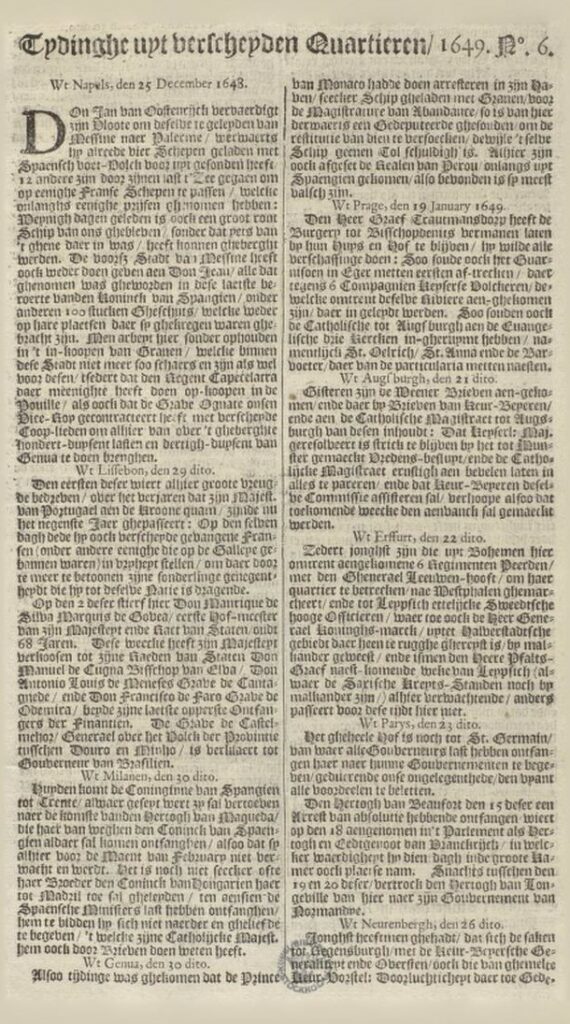Glossary
Tidings

Other languages
- Dutch: tijdingen (usually plural), nouvelle
- French: nouvelles (usually plural)
- German: Zeitung
- Italian: relatione, relazione, nuove
- Polish: (equivalents: nowiny, gazety ulotne)
- Spanish: relación
Material form
Printed book, Single-sheet printSubject
News and current affairsDescription
The English word tiding, as well as the German Zeitung and the Dutch tijding are derived from the middle Low German Tidung, meaning a message or event. In the 15th and 16th centuries all these terms referred primarily to a single piece of news, as did relation. In English and Dutch, the term retained this meaning, without referring to a particular genre. In both languages, the term was usually used in the plural rather than singular.
In Germany, the first use of Zeitung as a separate genre of print appeared around 1500 in the Newe Zeytungen, which referred to non-periodical, non-serial sheets of news on single events, ranging from 1 sheet to more than 20 pages, with a predilection for sensational news. Later in the 16th century, the handwritten Fuggerzeitungen (1568-1605), issued by the Fugger merchant house in Augsburg, developed a certain periodicity and reported on multiple events in one newssheet.
In Germany, the Zeitung thus became the equivalent of the Italian avvisi as both a specific genre and a general word for news or for newspaper (usually on a weekly basis). Although the earliest printed newspapers in Germany (starting in 1605) used terms such as avvisi and Relation, the term Zeitung came to replace these terms in the course of the 17th century. It also became the general term for all news media, marking a transition from Zeitungen (multiple pieces of tidings collected) to Zeitung (no longer singular for ‘tiding’ but singular for ‘newspaper’). By the late 18th century, the use of Zeitung to indicate a single piece of news had become obsolete.
The French equivalent of tidings was nouvelles (derived from nouveau, new), commonly used in the plural.
Related terms
nouvelle, report, relation, aviso
Sources
P. Arblaster, A. Belo, C. Espejo, S. Haffemayer, M. Infelise, N. Moxham, J. Raymond, N. Schobesberger, ‘The Lexicons of Early Modern News’, in: J. Raymond and N. Moxham (eds.), News Networks in Early Modern Europe (Leiden/Boston: Brill, 2016), 64-101.
J. Hyde, J. Raymond, M. Rospocher, Y. Ryan, A. Schaffer, H. Salmi, Communicating the News in Early Modern Europe. Cambridge Elements series (Cambridge: Cambridge University Press, forthcoming 2023).

